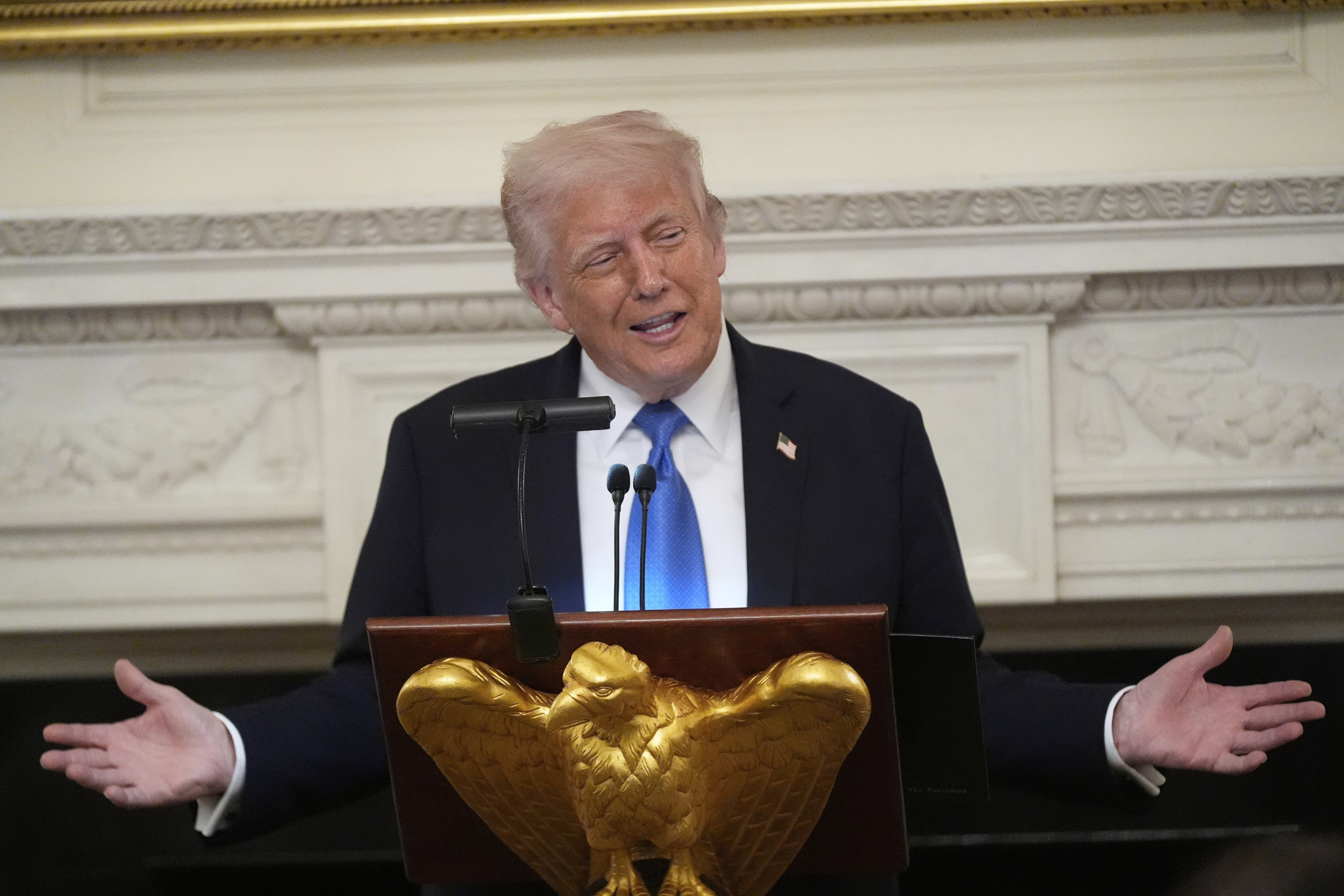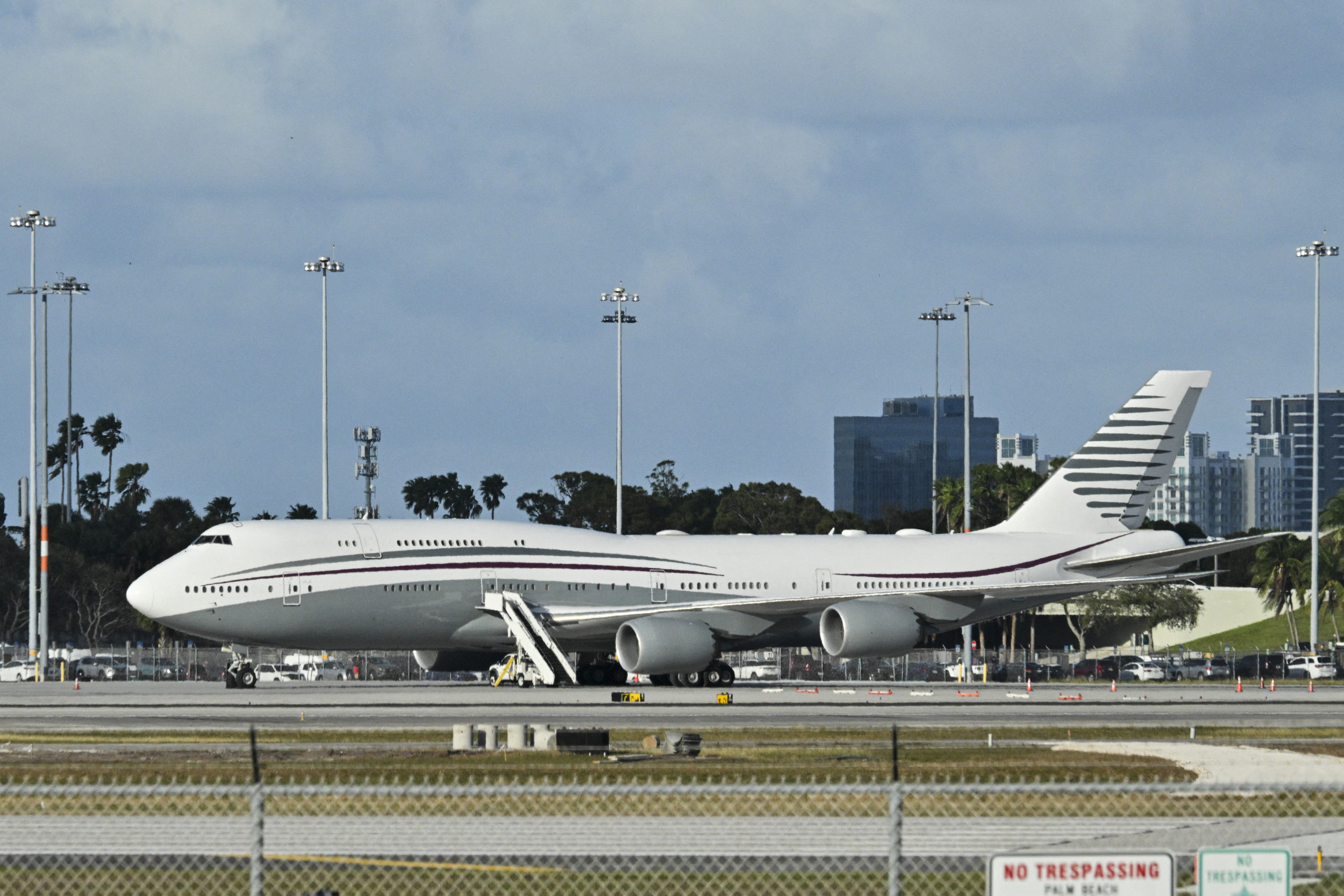🎙️ Voice is AI-generated. Inconsistencies may occur.
Another shipping port official voiced concern about the drastic decline in imports as a result of President Donald Trump's tariffs.
"I can see it right over my shoulder here, I'm looking out at the Port of Seattle right now, and we currently have no container ships at berth," Seattle port commissioner Ryan Calkins told CNN on Wednesday.
"That happens every once in a while at normal times, but it's pretty rare," he added. "And so to see it tonight is I think a stark reminder that the impacts of the tariffs have real implications."
Newsweek has reached out to the Port of Seattle via email outside of business hours for further comment.
Why It Matters
Several port authorities have observed a similar drop in cargo volumes over the past few weeks, warning that such a decline could have significant and adverse effects on consumers—who may face rising prices and limited product availability—as well as the supply chain-linked sectors of the U.S. economy.
What To Know
Calkins told CNN that the current situation would impact the job security of longshoremen and those dealing directly with the freight, as well as industries responsible for transporting imports nationwide.
"And that's hundreds of jobs right here in our region and across the country," he said, adding that his port had not witnessed such a significant downturn in activity since the height of the COVID-19 pandemic.

Long Beach Port CEO Mario Cordero similarly compared the current decline in traffic to COVID-era disruptions, describing the situation as "dire" in an interview with NBC.
"You could hear a pin drop," Port of Los Angeles Director Gene Seroka said, telling NPR this week that imports at the ordinarily busy port were down by around 35 percent on an annual basis.
"The impact the Port of Los Angeles has on the city, the region and the country cannot be understated," Seroka told NPR. "The cargo that moves through this port reaches not only all 50 states, but each one of our 435 congressional districts."
What People Are Saying
Gene Seroka, executive director of the Port of Los Angeles, told CNN on Tuesday: "This week, we're down about 35 percent compared to the same time last year, and these cargo ships coming in are the first ones to be attached to the tariffs that were levied against China and other locations last month. That's why the cargo volume is so light."
Seroka said last week: "American importers, especially in the retail sector, are telling me that they have about five to seven weeks of normal inventory on hand today."
Ryan Young, senior economist at the Competitive Enterprise Institute, previously told Newsweek: "Tariff-related shipping slowdowns will cause a regional cascade effect in the U.S., a little like when COVID-19 first hit. It will first be visible in West Coast ports, which have the fastest shipping times from Asia. After that it will spread to Gulf ports like Houston, which take a little longer to reach, then East Coast ports from the Carolinas up to New England."
What Happens Next
The administration has been deliberating a deal with China it says could result in duties on its imports dropping significantly. However, Beijing has given equivocal statements regarding its readiness to negotiate with the U.S.
In his testimony before the House Financial Services Committee on Tuesday, Treasury Secretary Scott Bessent said that he, alongside U.S. Trade Representative Jamieson Greer would commence negotiations with China on Saturday in Geneva, Switzerland.
fairness meter
About the writer
Hugh Cameron is Newsweek U.S. news reporter based in London, U.K. with a focus on covering American economic and business ... Read more



